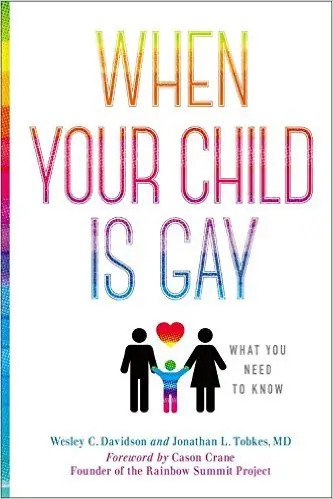What every heterosexual parent should know to effectively parent a LGBT child may be summed up in the 3 L’s: Love, Listen, and Learn.
Parenting is parenting with all its attendant joys and frustrations. The milestones are familiar: first tooth, first words, first day of kindergarten, first solo ride on a bicycle, First Communion, Bat or Bar Mitzvah, graduation from high school and college, marriage, and birth of children.
It’s a never-ending job that parents never retire from. Nor should they. Parents of heterosexual children have many role models for parenting, but if your children are lesbian, gay, bisexual or transgender, you have additional issues to grapple with and fewer role models.
Here’s a handy guide so you can be an even better parent:
Provide unconditional love
When your child comes out to you, all they want to hear is “I’ll love you no matter what and support you.” A hug doesn’t hurt either. Research such as the Family Acceptance Project at San Francisco State states that if a child is rejected at home, he/she is at greater risk for depression, low- esteem, truancy, drug abuse, and even suicide.
Don’t try to convert your LGBT child
When Your Child Is Gay co-author Jonathan L. Tobkes, M.D., says that “if a parent thinks he can keep a child from being a minority, he will regard her/his sexual orientation as a 'lifestyle' and one she can change.” You cannot erase your child’s sexual orientation. It’s part of their makeup.
Gay-to-straight or “pray the gay away” conversion camps don’t work in the long run and can cause depression and guilt in the participant. In fact, some states, such as California that regard the practice as dangerous have outlawed conversion therapy.
Expect bullying in school
As compared to heterosexual students, LGBT students miss as much as one day per month of school due to the stress of being harassed, according to GLSEN (Gay, Lesbian, Straight, Education Network). To counteract the bullying and cyberbullying, a parent should make his home a safe haven, a retreat. States psychiatrist Dr. Tobkes,” a child’s resilience to bullying is based on whether he feels that he has the loving and unconditional support of his family.”
Although most schools have “zero-tolerance” policies, that doesn’t necessarily mean that the bullying gets reported or stopped. If the harassment continues, have a plan of action with your child and the school.
Let your child guide you
As an LGBT child knows what it is like to live being different, let him educate you. This is one area where he knows best. It’s a role reversal, but your child can enlighten you and provide reassurance in your parenting skills.
It is not a good idea to interject your opinions such as “This is just a phase!” or “You can’t be!” These thoughts are provoked by feelings of denial, guilt, fear, anger, shame, and loss.
Constantly check in with your child
As LGBT children do not usually blend in, it’s important to ascertain their mental health. Find out how do they feel about being gay? How do they envision their future? Keep the conversations up!
If you have cut them off in the past, you can always apologize. When Your Child Is Gay: What You Need To Know contains conversation starters in “The Doctor Is In” section.
The world does not need to know your child's sexual orientation
Chances are your child told others first that he was gay. He may have practiced his coming out speech to his best high school friend or a relative who is particularly supportive.
In any event, you should ask your child whom he has told and whom you would like him to tell. It’s his story. His reputation should not precede him wherever he goes and he and your family deserves privacy.
You should be the sex ed. teacher
It is every parent’s job to discuss safe sex with his child. Schools may have an “abstinence-only” policy or have a curriculum that presumes that everyone is heterosexual.
Be sure that if your child is sexually active, that he knows where to get tested for sexually transmitted diseases and encourage him to level with his doctor about his sexual orientation so his physician can be on the lookout for HIV and Hepatitis C.
Your children are not supposed to be extensions of you
“Most parents do not have the experience or wish that their child will be gay,” confirms Dr. Tobkes. “It is a loss of a type of life they envisioned for their child.”
If you are having trouble accepting your child’s non-traditional sexual identity, do not let your child see your disappointment. It helps to work on your own issues in private first.
Be gentle on yourself. There is no timetable for working through your feelings to arrive at acceptance. Organizations such as PFLAG (Parents of Lesbians and Gays, that now includes bisexuals and transgenders) have chapters all over the United States and can provide seasoned advice from other parents who were once “in your shoes.” There are plenty of on-line educational materials from various sites such as The Parents Project.
 |
Excerpted with permission of the publisher from When Your Child Is Gay: What You Need to Know by Wesley C. Davidson and Jonathan L. Tobkes, M.D. For more information, visit whenyourchildisgay.com. |
RELATED:
Find Children's Development Resources




















